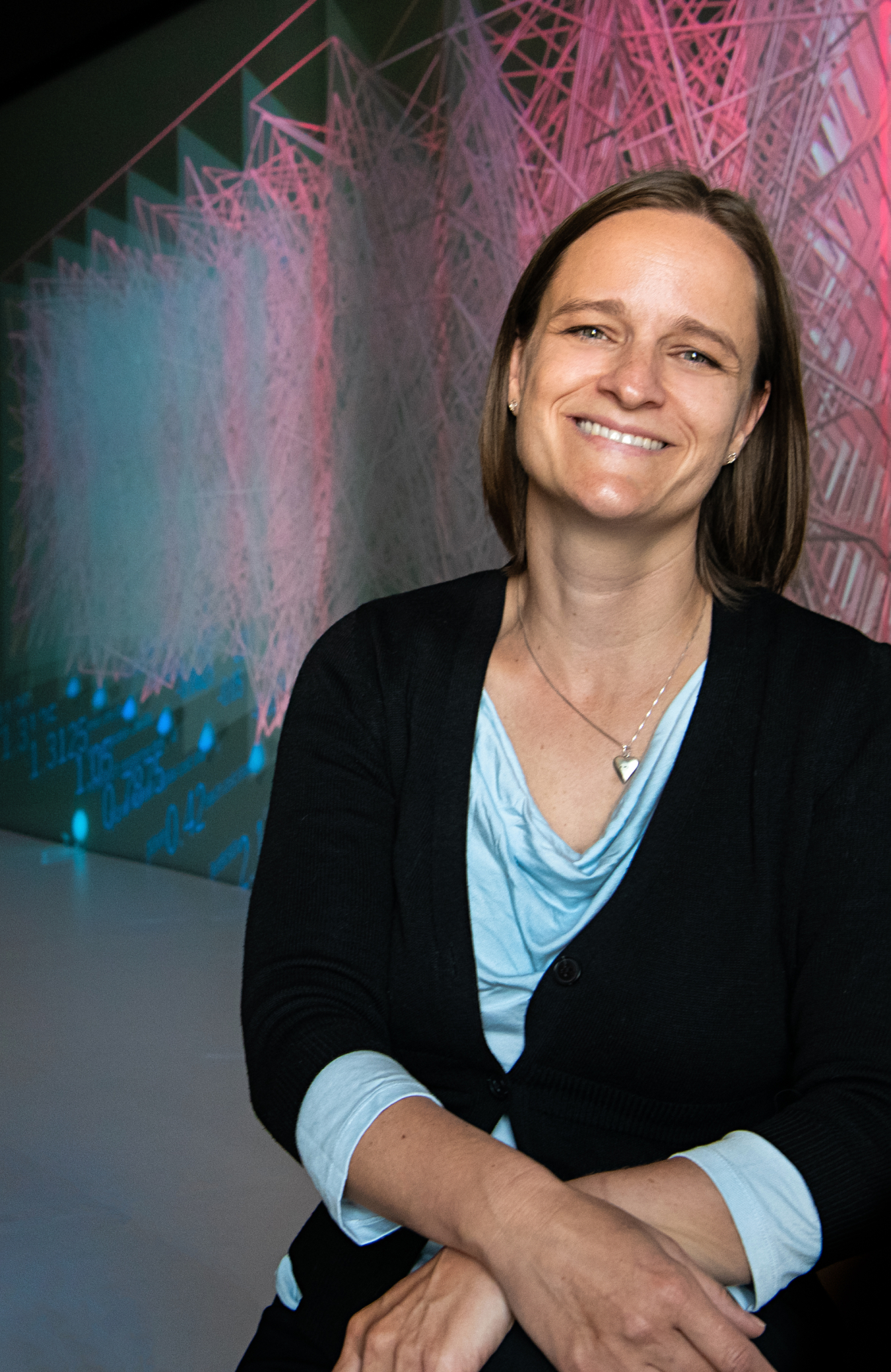Learn why Emily Newes loves her job as a group manager for Resources and Sustainability in the Strategic Energy Analysis Center at NREL.
December 12, 2019
Emily Newes is the group manager for Resources and Sustainability in the Strategic Energy Analysis Center at the National Renewable Energy Laboratory (NREL). Her group works in the areas of sustainability, resiliency, and systems thinking to explore issues related to renewable energy and the changing climate. Emily specializes in system dynamics modeling and has 15+ years of experience in energy modeling, analysis, and data. Emily received a bachelor’s degree in mathematical economics from Colgate University and a master’s in mineral economics with a focus in operations research at the Colorado School of Mines. She has been at NREL since 2009. Prior to joining NREL, Emily was the primary research manager at Platts and served in the U.S. Peace Corps – Honduras.
What inspired you to work in STEM?
I don’t think I ever had a different path than working in STEM. Both of my parents were science professionals. From an early age, I was analytical and loved numbers. I used to do math homework and logic problems in my spare time.
What excites you about your work at the Energy Department?
I work most with the Energy Efficiency and Renewable Energy (EERE) area of the U.S. Department of Energy. EERE and NREL have amazing scientists working on the cutting edge of renewable energy research. My work aims to highlight potential challenges, barriers, and opportunities for these technologies as they increase in technology readiness level and near market entry. By highlighting these issues before renewable energy technologies reach the market, my work can help to inform better design and infrastructure build-out. At NREL, we work together with a shared vision of developing lower-emitting technologies to combat global climate issues. I can’t imagine anything more exciting.
How can our country engage more women, girls, and other underrepresented groups in STEM?
To make STEM more inclusive, we need to focus on increasing exposure and instilling confidence. Much of what makes STEM amazing is getting kids out of the classroom setting and showing how STEM impacts their everyday lives. We need to erase the idea that STEM is the most difficult subject in school. I try to incorporate STEM concepts with my two young daughters daily in regular conversation.
Do you have tips you'd recommend for someone looking to enter your field of work?
Work hard in school; choose projects and internships that are applicable to energy. Take a lot of analytical classes where you will learn coding skills. And always be passionate about what you do.
When you have free time, what are your hobbies?
I like to spend time with my husband and two daughters – camping, hiking, mountain biking, traveling, and doing math homework.
Learn more about our programs & resources for women and girls in STEM at http://www.energy.gov/women

